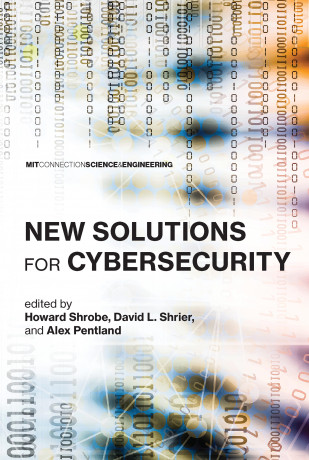myBusinessCourse.com will be undergoing routine maintenance on Monday, August 4th. The system will be unavailable between 7:00 am and 10:00 am eastern time. Please plan accordingly.
New Solutions for Cybersecurity
ISBN: 9780262535373 | Copyright 2018
Experts from MIT explore recent advances in cybersecurity, bringing together management, technical, and sociological perspectives.
Ongoing cyberattacks, hacks, data breaches, and privacy concerns demonstrate vividly the inadequacy of existing methods of cybersecurity and the need to develop new and better ones. This book brings together experts from across MIT to explore recent advances in cybersecurity from management, technical, and sociological perspectives. Leading researchers from MIT's Computer Science & Artificial Intelligence Lab, the MIT Media Lab, MIT Sloan School of Management, and MIT Lincoln Lab, along with their counterparts at Draper Lab, the University of Cambridge, and SRI, discuss such varied topics as a systems perspective on managing risk, the development of inherently secure hardware, and the Dark Web. The contributors suggest approaches that range from the market-driven to the theoretical, describe problems that arise in a decentralized, IoT world, and reimagine what optimal systems architecture and effective management might look like.
Contributors
YNadav Aharon, Yaniv Altshuler, Manuel Cebrian, Nazli Choucri, André DeHon, Ryan Ellis, Yuval Elovici, Harry Halpin, Thomas Hardjono, James Houghton, Keman Huang, Mohammad S. Jalali, Priscilla Koepke, Yang Lee, Stuart Madnick, Simon W. Moore, Katie Moussouris, Peter G. Neumann, Hamed Okhravi, Jothy Rosenberg, Hamid Salim,Michael Siegel, Diane Strong, Gregory T. Sullivan, Richard Wang, Robert N. M. Watson, Guy Zyskind
| Expand/Collapse All | |
|---|---|
| CONTENTS (pg. vii) | |
| INTRODUCTION: Cybersecurity and Society (pg. 1) | |
| SECTION I MANAGEMENT, ORGANIZATIONS & STRATEGY (pg. 9) | |
| CHAPTER 1 Institutions for Cybersecurity: International Responses and Data Sharing Initiatives (pg. 11) | |
| CHAPTER 2 Cybersafety: A Systems Theory Approach to Managing Cybersecurity Risks—Applied to TJX Cyberattack (pg. 81) | |
| CHAPTER 3 Measuring Stakeholders’ Perceptions of Cybersecurity for Renewable Energy Systems (pg. 113) | |
| CHAPTER 4 Fixing a Hole: The Labor Market for Bugs (pg. 129) | |
| SECTION II ARCHITECTURE (pg. 161) | |
| CHAPTER 5 Balancing Disruption and Deployability in the CHERI Instruction-Set Architecture (ISA) (pg. 163) | |
| CHAPTER 6 Fundamental Trustworthiness Principles in CHERI (pg. 199) | |
| CHAPTER 7 ISP—Hardware Enforcement of Security Policies (pg. 239) | |
| CHAPTER 8 Stealing Reality: When Criminals Become Data Scientists (pg. 267) | |
| CHAPTER 9 Moving Target Techniques: Cyber Resilience through Randomization, Diversity, and Dynamism (pg. 293) | |
| SECTION III SYSTEMS (pg. 313) | |
| CHAPTER 10 Who's Afraid of the Dark Web? (pg. 315) | |
| CHAPTER 11 Social Physics and Cybercrime (pg. 351) | |
| CHAPTER 12 Behavioral Biometrics (pg. 365) | |
| CHAPTER 14 Owner Centric Access Management for IoT Data (pg. 403) | |
| CHAPTER 15 Enigma: Decentralized Computation Platform with Guaranteed Privacy (pg. 425) | |
| CHAPTER 16 The Trust::Data Framework as a Solution to the Cybersecurity Challenge (pg. 457) | |
| Conclusion (pg. 477) | |
| Contributor Biographies (pg. 485) | |

